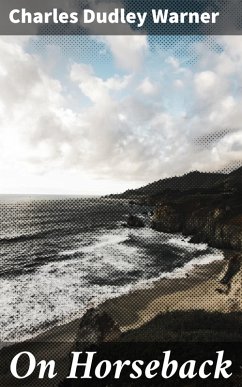In "On Horseback," Charles Dudley Warner presents a richly descriptive account of his experiences traveling through the American landscape on horseback. The book deftly combines travel writing with a reflective examination of nature and society, showcasing Warner'Äôs keen observational skills and wit. His prose is characterized by a blend of humor and earnestness, inviting readers to contemplate the beauty of rural America while critiquing the rapid industrialization of his time. The evolution of his journey serves as both a physical and metaphorical exploration of freedom and discovery, situating the narrative within the broader context of American literature's burgeoning interest in nature and the outdoors during the late 19th century. Warner, a close associate of Mark Twain and a prominent figure in American letters, infused his own experiences and philosophical musings into "On Horseback." His background as a journalist and social critic provided him with a unique lens through which to perceive the changing American landscape. Warner'Äôs contemplative style reflects his belief in the interconnectedness of nature and human progress, drawing on personal anecdotes and broader societal observations that underscore his literary voice. This book is an essential read for enthusiasts of American literature, travel narratives, and nature writing. Warner's insights into the relationship between man and the natural world resonate deeply with contemporary environmental concerns, making this work both timeless and relevant. Readers will be captivated by Warner'Äôs engaging storytelling and his ability to evoke a sense of place that invites reflection and appreciation for America'Äôs diverse landscapes.
Dieser Download kann aus rechtlichen Gründen nur mit Rechnungsadresse in A, B, BG, CY, CZ, D, DK, EW, E, FIN, F, GR, H, IRL, I, LT, L, LR, M, NL, PL, P, R, S, SLO, SK ausgeliefert werden.









